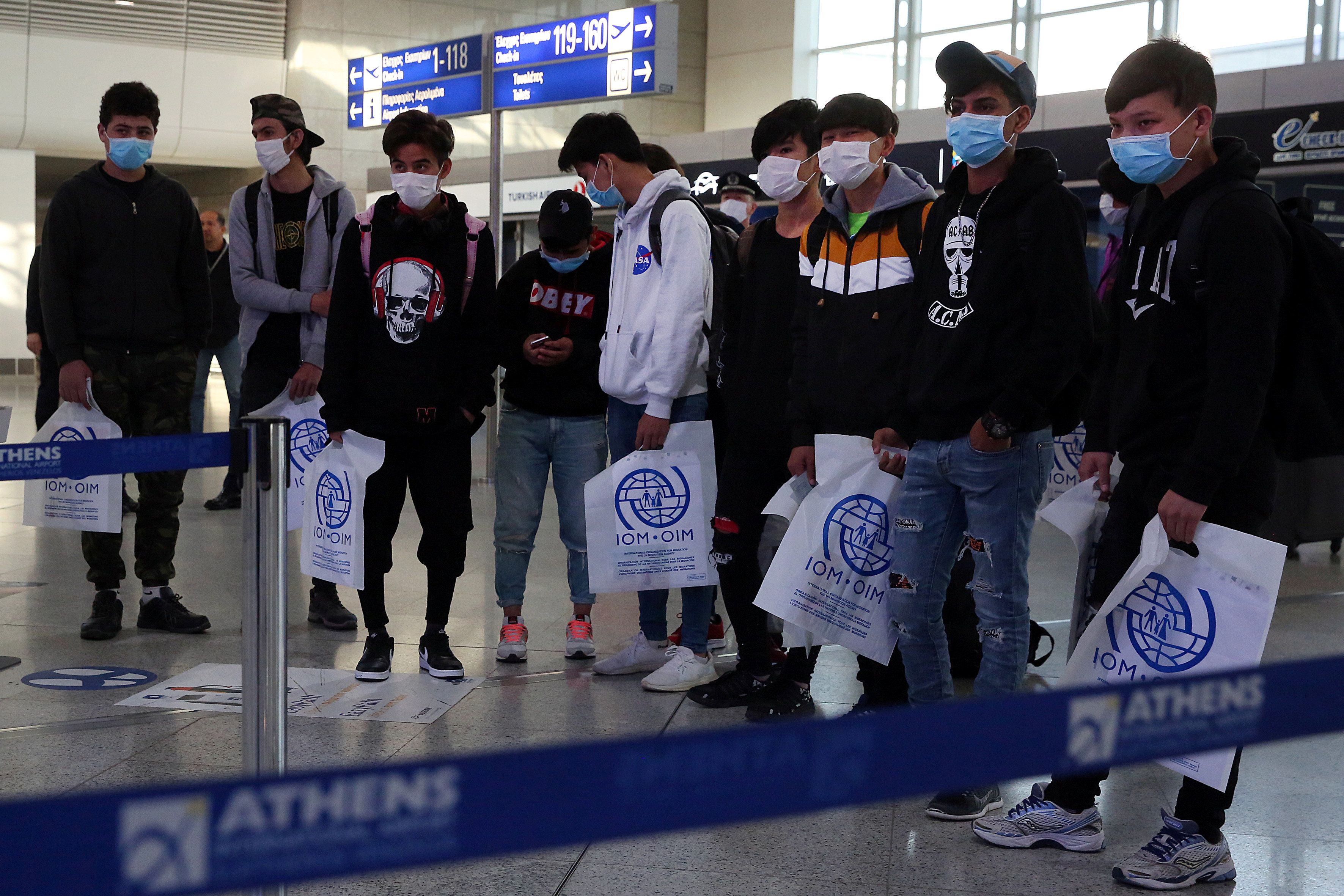Greece relocates migrant children:Amid growing concern over migrant populations' vulnerability to a coronavirus outbreak, Greece this week began transferring dozens of unaccompanied migrant children from crowded Greek refugee camps to dwellings elsewhere in the EU. Some have been sent to Luxembourg, while others are expected to go to Germany and Switzerland. Over 5,200 migrant children, many from war-torn Afghanistan, Syria and Iraq, currently live in overcrowded camps on the Greek islands, where infectious disease is rife, and sanitation is extremely poor. Greece, which has long complained about bearing the brunt of migrants fleeing conflict in Africa and the Middle East, says it hopes to relocate some 1,600 unaccompanied migrants to other EU countries in the months ahead. About a dozen states, including Italy and Portugal, have said they are willing to absorb them. But with many EU countries now crippled by massive coronavirus outbreaks themselves, it remains to be seen whether they will follow through.
Moscow restrictions go back to the future: With COVID-19 cases continuing to climb in the Russian capital, the city government has unveiled a new system of digital permits that people must have in order to travel anywhere in the city by car or public transportation. Essential workers get 30-day passes, while others can get one-day passes for doctor's visits or other approved personal reasons. In a way this is a 21st century rehashing of the old Soviet system of propuski, which were required to travel between regions. Two things to consider here: first, when and under what circumstances does this system end? Unlimited physical freedom to travel is one of the fundamental perks of Vladimir Putin's neo-authoritarian system of governance. And second, as countries in Western Europe and the US discuss the prospect of widespread testing as a means to reopen economies, will we too have to develop a similar system of centralized data, permissions, and control?
Coronavirus gives a boost to measles: Disruption to global supply chains because of the coronavirus pandemic, coupled with national stay-at-home orders, have disrupted mass immunization programs that low and middle-income countries rely on to keep children inoculated from otherwise deadly diseases. The Measles and Rubella initiative said that, so far, 24 countries had suspended their immunization programs, warning that as many as 100 million children could now be at risk of contracting measles. Measles remains one of the world's most contagious diseases, and in the absence of a vaccination, can be lethal. (In 2018, the most recent year for which there's comprehensive global data, measles killed 142,300 people.) While parents in wealthier countries might get their kids vaccinated by the family doctor, in countries like Brazil, Cambodia, and Nigeria, where measles epidemics are rife, many take their children to a community center or marketplace where large-scale immunization drives take place. This is not possible under social distancing guidelines, and medical experts say it will be a huge challenge to stop the spread of coronavirus without creating conditions for an explosive resurgence of measles or other infectious diseases.
More For You
After the US captures Nicolás Maduro, is Venezuela headed for stability, or chaos? Ian Bremmer talks to Senator Ruben Gallego and Frank Fukuyama about what comes next.
Most Popular
Think you know what's going on around the world? Here's your chance to prove it.
